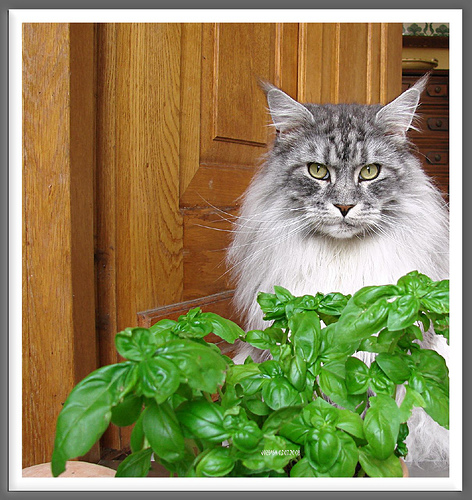24 Lessons Learned from Writing My Novel
Today’s guest post is by author Noelle Sterne.
Mainly a nonfiction writer, for years I promised myself I’d write a novel. I finally plunged in, and of course it was daunting. Inching along, I learned many things—and scribbled them down instead of working on the next chapter.
Here I offer you twenty-four of these lessons. Whether you’re an aspiring novelist, in the throes of writing your first or thirty-fifth novel, or petrified at any stage, I hope these lessons help in your wars with your own works.
- Day by day, slog through. Let myself fall into the water. Trust that I’ll float, paddle, finally swim with purpose. It’s one blind grope after another. Accept it.
- Thinking ahead too much frightens more and overwhelms. Don’t.
- Writing elaborate character sketches, analyses of their motivations, fancy psychologizing, and intricate setting descriptions may be necessary and even beneficial. I know they’re all highly recommended but secretly suspect these are all pseudo-writing, keeping me from the main event.
- Don’t keep a journal about this progress. A journal is cheating; I journal when I could/should be working on the book, or at least just sitting there at my writing desk. As the American short story writer Flannery O’Connor advised a young writer: “No reading, no talking, no cooking, no nothing … If you don’t write, don’t do anything else.”
- Resist the damn, wonderful internet. I’m drawn to the headlines like a diabetic to a bakery, especially to articles on chart-busting authors whose latest novel was just adapted for a film and is in production with A-list actors—and three sequels to follow. Needing more of an excruciating fix, I then turn to descriptions of best-selling, award-winning mystery, political intrigue, romance, suspense, chick lit, erotic, 700-page sweeping historical sagas.
- When I read others, I see that they write about anything, in any style, any era. Sensational, outlandish, too real, darkest dark, lightest fantasy. This ridiculous range is good to see—it gives me permission and freedom.
- Read any article on writing craft, as if these count during my novel-writing time. But they baby me along. In one of them, Fay Weldon says that, day-to-day, “writing can seem like pointless drudgery.” Especially with boring back narrative.
Yet, in the same article, Elizabeth Gilbert confesses she learned that “when things aren’t going well, to regard my struggles as curious, not tragic.” She approaches her writing with a “stubborn gladness.” Yes!
- I console myself with Edith Wharton’s incisive (even though disheartening) description of the stages of a novel: What is writing a novel like? The beginning: a ride through a spring wood. The middle: the Gobi desert. The end: a night with a lover. Reminder: pack plenty of water for the trek.
- Don’t get caught rewriting, editing, shuttling back and back. I will never make progress, and the creative light dissipates. Plenty of time for rewrites.
- One wobbly step at a time. Follow what prods.
- It’s not a mystery. Best sellers and literature are . . . just words. I’ve got as many as they do. I can mold and shape and form and transform them as much as they can.
- Reading others’ interviews, essays, blogs, I comfort myself with the truth that everyone goes through these struggles. They’re universal maladies of all writers, from National Book Awardees to Man Bookers to Guggenheimers to Sapelsteins to O’Doughertys to National Endowmenters to newbies.
- Recognize that today’s social kudos are ephemeral and artificial (even though I can’t help but crave them). Julia Cameron says in The Artist’s Way that fame is a drug. I don’t want to become addicted. I intone: I am more and other than my accomplishments, possessions, status, etc. etc. etc. Besides, I won’t succumb to what makes for so many best sellers—a paranormal-dystopian-international intrigue-Amish-ish mystery-love story between two fourth-world gender-diffuse beings. Just not me.
- Reality: watch out! It can converge calamitously with wishful writing. When I write based on reality, and then recall that reality, the edges bleed into each other, one paint blob into the next, gravy into cranberry sauce, polluting, diluting both. I live so much in my novel that the real people start to assume the characters’ imagined qualities. But I also take heart at other novelists’ reality-based portraits (reading again!): Scrooge, James Bond, Sherlock Holmes, Molly Bloom, Indiana Jones, Ron Burgundy …
- When the novel is pretend-reality, issues I never suspected rear up: the span of years in which it takes place, the streets-town-city-country, landmarks, names, backgrounds, belief systems, events, birthdays, holidays. No quick fixes, easy solutions. All must interlock with verisimilitude. I finally succumbed to a massive timeline.
- Even the bad stuff is a gift. It gets out the crap and shows me what not to do. Andres Dubus III in an Author Magazine interview (wish I remember which one) observed, as have many others (Stephen King, Donald Barthelme, E. L. Doctorow) that the hubris of creating is wholly mysterious. Leonard Bishop calls it the “Alchemy of Writing” (Dare to Be a Great Writer, p. 24). We rarely know what we’re doing. And every writing writer knows of the melding of words-ideas-images-past fantasy-present realities to make a character or story, and the progression that, eventually, leads you to what finally feels right.
- I invoke all the positive assurances:
Give us this day our daily regular session.
One day, page, paragraph, sentence, phrase, word, comma at a time.
Inch by inch I crawl, claw, scratch my way through.
Our Father, whose ideas leaven, hallowed be my pen.
The novel of a thousand pages starts with the first cheese Danish.
- Must do what’s in me to do—all the carrots be damned, like eye-popping advance, movie option, six million Twitter hits, praise from Mother (finally).
- Plunge into the work and feel my power.
- I don’t need to know where it’s going. I will be told. Listen inside.
- Tend my own garden. Chop wood, carry water.
- Stop? Never. Curtail? Hardly.
- Accept a love-hate-wrestle-embrace relationship with this novel. Probably too with every one after.
- Just sit there. And keep going.
Now, enough stalling. I hope these twenty-four points have inspired you to get back to it, as I must now. At least for another six minutes.
Postscript: I am incredulously pleased to report that I finally finished the first draft of the novel. Only four edits to go!
 Noelle Sterne is an author, editor, writing coach, workshop leader, and academic mentor and nag. She’s published more than 600 stories, essays, writing craft articles, spiritual pieces, and occasional poems in literary and academic print and online venues. In her spiritual self-help book, Trust Your Life: Forgive Yourself and Go After Your Dreams, she draw examples from her academic consulting and other aspects of life to support readers in reaching their lifelong yearnings. You can learn more about Noelle at her website: Trust Your Life Now.
Noelle Sterne is an author, editor, writing coach, workshop leader, and academic mentor and nag. She’s published more than 600 stories, essays, writing craft articles, spiritual pieces, and occasional poems in literary and academic print and online venues. In her spiritual self-help book, Trust Your Life: Forgive Yourself and Go After Your Dreams, she draw examples from her academic consulting and other aspects of life to support readers in reaching their lifelong yearnings. You can learn more about Noelle at her website: Trust Your Life Now.
Featured Photo by Sammie Vasquez on Unsplash












Excellent points made here. I agree with what you are saying. I sum it up with ‘Just plough on!’
You are right, Susannah. I’m putting your “mantra” on a post-it at the front of my computer. Would add . . . plough on “and ignore those negative voices.”
Inspiring tips.
Educative and informative too.
A milestone for a beginner like me.
Thank you, Noelle Sterne. I am finished with the draft of my first novel and slogging through my edits and rewrites. You’ve described so many of my emotions…calming advice, all of it!
Glad to help, Nancy. We all keep learning. Keep on slogging–with love!
This is one of the best kick-you-in-your-butt-blogs Thank you so much. As a writer, the need to read another writer’s ups and downs, makes sitting at my desk okay!
Thank you, C.L.! I hope the kick wasn’t too hard. I too need the reminders of other writers’ valleys and mountaintops. Even the stellar best-selling authors have similar experiences in birthing their books. Keep sitting at your desk!